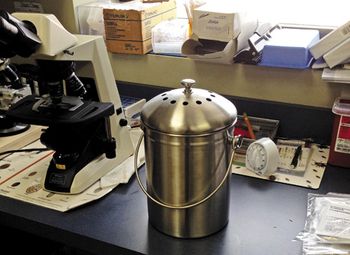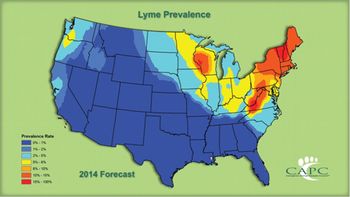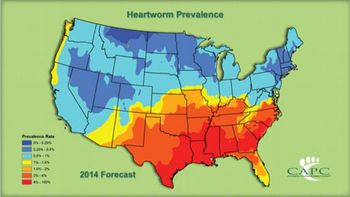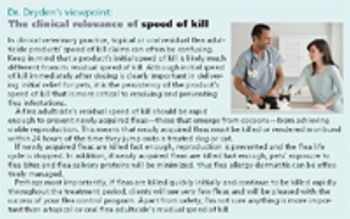
This "underhanded" pest is a threat.

This "underhanded" pest is a threat.

Deal comes as Eli Lilly tries to buy Novartis Animal Health, which markets the veterinary parasiticides.

Thorough testing helps keep more pets protected from heartworm disease.

From Alaska to Florida, the brown dog tick is a pest for all seasons.

Is your veterinary team's nose out of joint over the aroma of your waiting fecal samples? Here's help.

Moose are easy targets, but winter ticks aren't discriminatingthousands of ticks can clump on a single branch waiting for host.

Think that because summer is over you can stop worrying about ticks? Dr. Mike Dryden explains when and where you should be looking for Western blacklegged ticks.

You may never have considered that tick genera have personalities but Dr. Susan Little has. She may not have given them a Rorschach's inkblot test, but she does give us some insight into their personalities, which also gives us insight into what to expect in an infestation.

Dr. Karen Snowden discusses the clinical signs and diagnosis related to an often-overlooked and hard-to-find trematode parasite, Heterobilharzia americana.

Ask clients the right questions and you'll get more chances to educate.

The National Center for Veterinary Parasitology and Companion Animal Parasite Council address emerging needs in understanding and managing heartworms and other complex parasites.

You might need to look past the standard fecal flotation to diagnose these not-so-common parasites.

Parasitology group updates recommendations based on frequency of false negative antigen results.

The CAPC Parasite Forecast Maps track millions of data points and factors such as temperature, elevations, precipitation, and population density to predict the risk of vector-borne diseases. This update on Lyme give you the key findings.

The CAPC forecast maps show that heartworm continues to be a serious risk to U.S. dogs and cats

It's a bird, it's a plane-it's a tick?Have you heard people say the ticks were falling from the trees? Watch as Dr. Susan Little discusses where to expect questing ticks.

The Gulf Coast tick vector of Hepatozoon americanumAmblyomma maculatum may be called the Gulf Coast tick, but its name hasn't stopped it from moving to interior states and the east coast. In this video Dr. Mike Dryden also shares the interesting (and a little bizarre) life cycle of Hepatozoon americanum.

Antigen testing can result in a false negative.Are you seeing patients you are sure have heartworm infections, but they are testing negative? Dr. Susan Little explains what might be going on – and what can be done about it.

Communicate dangers and protect against vectors with this useful tool.The Companion Animal Parasite Council iPad app Make talking to clients about parasites easy and fun. Watch as Cathy Michaelson, Business Manager at Aumsville Animal Clinic, describes how they use this tool in their clinic to help communicate the dangers of vectors as well as how to protect.

Return to veterinary market comes after product inconsistency issues in 2013.Virbac is reintroducing Iverhart Plus (ivermectin-pyrantel) Flavored Chewables to the veterinary market after potency and shelf life issues prompted a voluntary recall and withdrawal of the product in 2013.

Parasitologist Dr. Michael W. Dryden addresses the distinction between initial speed of kill and residual speed of kill of flea adulticides; he explains the latter's importance in successful flea control in the household.

Parasitology expert Michael Dryden, DVM, MS, PhD, shares which species of wildlife are a threat to the pets in your clients' backyards.

Parasitology expert Michael Dryden, DVM, MS, PhD, discusses the tricky conversation you have to have with pet owners to help them understand the flea life cycle?and get a handle on the situation at home.

Using the Companion Animal Parasite Council Prevalence Maps.

The American dog tick is the primary vector for several diseases